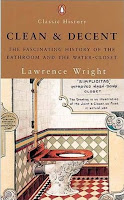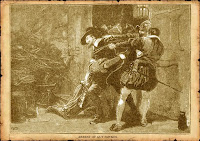 I’ve been researching Lord Castlereagh (Robert Stewart, Viscount Castlereagh, later Marquess of Londonderry). “From March 1812 to July 1822 Castlereagh’s biography is, in truth, the history of England.” (from the biography at http://www.nndb.com). During this period he had the leadership of the House of Commons as well as being Foreign Secretary. His diplomacy kept the alliance between Great Britain, Austria, Russia and Prussia together at a crucial time in 1814, and Castlereagh also figured prominently in the Treaty of Paris and the Congress of Vienna, thus playing a crucial role in the history of Europe as well as Britain.
I’ve been researching Lord Castlereagh (Robert Stewart, Viscount Castlereagh, later Marquess of Londonderry). “From March 1812 to July 1822 Castlereagh’s biography is, in truth, the history of England.” (from the biography at http://www.nndb.com). During this period he had the leadership of the House of Commons as well as being Foreign Secretary. His diplomacy kept the alliance between Great Britain, Austria, Russia and Prussia together at a crucial time in 1814, and Castlereagh also figured prominently in the Treaty of Paris and the Congress of Vienna, thus playing a crucial role in the history of Europe as well as Britain.
It’s as his role of Foreign Secretary that he will play a role in a proposal I’m writing.
But to tell the truth, Castlereagh has intrigued me for a while now, ever since I read about his suicide in 1822. After a bout of gout and much stress, Castlereagh became depressed and paranoid. “My mind, my mind, is, as it were, gone,” Castlereagh had said. Both the Prince Regent and Wellington warned his doctor that Castlereagh might try to take his own life. His razors were removed from his room but a letter opener was forgotten. Castlereagh used the letter opener to cut his throat.
I think it was that horrific means of killing himself that first struck me about Castlereagh, a man who had achieved such great things. Having worked in mental health I had an understanding of clinical depression and an acute empathy for its sufferers. Knowing Castlereagh suffered from such a painful depression makes me feel so incredibly sad for him.
It seems so obvious to me that Castlereagh was a truly great man, but while he was alive, he suffered much unpopularity. In his native Ireland he was considered a traitor because he supported union with Great Britain. He was held responsible for the repressive “Six Acts” passed by Parliament after Peterloo. Even his remarkable decisions to stabilize Europe were criticized at the time. Castlereagh even (probably because of his paranoia) thought he was going to be accused of homosexuality.
Learning all this made me even sadder for him! It’s not fair!
Do you know how it is when you learn a lot about an actor or actress, that you have the illusion that you know them? You have a vivid idea of their personality, of what kind of person they are. That’s how I feel about Castlereagh. Like I know him. It’s how I feel about Wellington, too. And Jane Austen… and Emma Hamilton.
I feel I know Byron, too, but I don’t like him. Here’s what he wrote of Castlereagh shortly after the man’s tragic death:
Posterity will ne’er survey
a Nobler grave than this:
Here lie the bones of Castlereagh:
Stop, traveller, and p*ss!
Grrrrrrrrrrrr.
Is there anyone in the Regency or in history whom you feel you know?
 By the way, the excerpt from The Vanishing Viscountess is up on my website now. Also notice the snowflakes on my site! Aren’t they pretty? While you are exploring the site (which of course you will want to do) sign up for my newsletter. And while you are in the signing-up-for-newsletter mood, sign up for our Riskies newsletter, too. Just email us at riskies@yahoo.com and put NEWSLETTER in the subject line.
By the way, the excerpt from The Vanishing Viscountess is up on my website now. Also notice the snowflakes on my site! Aren’t they pretty? While you are exploring the site (which of course you will want to do) sign up for my newsletter. And while you are in the signing-up-for-newsletter mood, sign up for our Riskies newsletter, too. Just email us at riskies@yahoo.com and put NEWSLETTER in the subject line.









